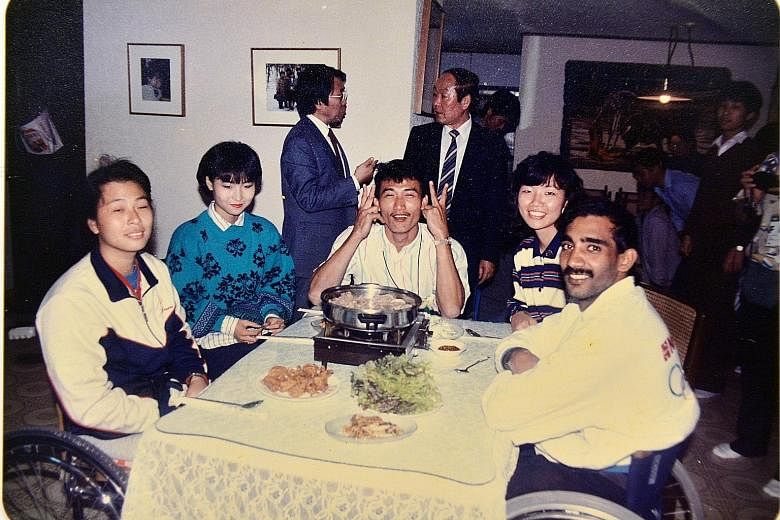In recent weeks, Raja Singh has been smiling as he leafs through the newspaper in the living room of his Tampines flat. The articles often featured a beaming Yip Pin Xiu splashed across the page.
The coverage has left the vice-president of the Singapore Disability Sports Council (SDSC) encouraged by the progress of para-sports in Singapore.
He said: "I am amazed by all the contributions and the publicity that our athletes have got since last year's APG (Asean Para Games). It was a momentum we rode well. It's all momentum and continuity. I don't expect to be on par with the international level of recognition when it comes to para-sports right now but I believe everything comes together in time. It is a big cycle."
And a long one.
Singh, 55, was one of the eight members of Singapore's pioneer batch of Paralympians who competed in Seoul in 1988. The former wheelchair racer recalled to The Straits Times: "Then, it was all sheer hard work and passion... I wasn't concerned with the recognition. I just knew I wanted to be the best and I was going to work for it."
He recalled going to international meets to survey his rivals' wheelchairs so that he could return home, visit the local factory and tell them how he wanted his made.
"We didn't know how to import and it was too expensive… You can't be an athlete unless you know how to wrap up your own gloves," he explained, insisting that the tough learning process was necessary.
His former team-mate, William Tan, also recalled being involved in the production of his racing wheelchair as he made frequent visits to a small shop in Ang Mo Kio where it was made.
The 59-year-old said: "We went into the Games without the proper coaching and insight and knowledge the athletes get nowadays… Nature has it that you reap what you sow and the competitors (then) were more advanced.
"We didn't mind so much about the (lack of) attention, we focused on our results and what was best for Singapore so even though we had poor equipment, we went out there and gave it our best."
He acknowledged the success of the 13 Rio 2016 Paralympians, calling their medal-winning efforts "heartwarming", but believes that changes must be made in (organisational) structure and funding to nurture the next generation of elite para-athletes.
He said: "Pin Xiu belongs to a blessed group of elite athletes, but what are we going to do for the next Pin Xiu? We need to do more to nurture the next Pin Xiu and Theresa...
"More support and overseas exposure must be given to them (young athletes) to learn from experience."


